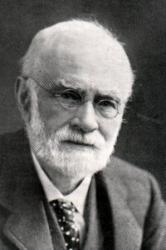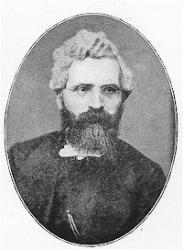Planning worship?
Check out our sister site, ZeteoSearch.org,
for 20+ additional resources related to your search.
- |
User Links
Person Results
H. Elvet Lewis
1860 - 1953 Person Name: H. E. L. Translator of "Ar lan Iorddonen ddofn (I linger sadly near)" in Mawl a chân = praise and song Lewis, Howell Elvet, M.A., born April 14, 1860, and educated for the Congregational Ministry. After holding several charges in the country, he removed to London in 1898. His Sweet Singers of Wales, 1889, contains translations of standard Welsh hymns. They are well done, and worthy of attention on the part of hymn-book compilers. Mr. Lewis is M.A. of the University of Wales. [Rev. T. G. Crippen]
--John Julian, Dictionary of Hymnology, New Supplement (1907)
=================
Howell Elvet Lewis, CH (14 April 1860 – 10 December 1953), widely known by his bardic name Elfed, was a Welsh Congregational minister, hymn-writer, and devotional poet, who served as Archdruid of the National Eisteddfod of Wales from 1924 to 1928.
Elfed was born on 14 April 1860, the eldest son of twelve children of James and Anna Lewis, of Y Gangell, near Blaenycoed, Carmarthenshire. His father was a farm labourer and his mother was a local shopkeeper. He had a very limited early education, but through self-study and attendance at the local chapel schoolroom he managed to gain entry to Newcastle Emlyn Grammar School at the age of 14. Two years later he succeeded in an examination for admission to the Presbyterian College, Carmarthen, where he trained for the ministry.
Elfed was ordained in 1880 and was made pastor of St John’s English Congregational Church in Buckley, Flintshire, where the local Secondary School Elfed High School is named after him. In 1884 he moved to minister at Fish Street Church, Hull. He returned to Wales in 1891 as minister of the English Congregational Park Chapel, Llanelli. In 1898 he accepted a calling to Harecourt Chapel in London, where he remained until 1904. In 1904 he became minister of Tabernacle Chapel (Capel y Tabernacl in Welsh) – a Welsh language Congregational chapel in King's Cross, London. He remained at Y Tabernacl until his retirement in 1940. He retired to Penarth, where he became a member of Ebeneser Chapel, Cardiff.
Apart from serving as a church minister Elfed's ministry included two periods as chair of the London Missionary Board in 1910 and 1922. He was one of three representatives of the Congregational Union of England and Wales invited to visit Madagascar to celebrate the centenary of the arrival of the first missionaries to the country. He was elected President of the National Free Church Council, 1926–27, President of the Welsh Union of the League of Nations, 1927–28, and chairman of the Congregational Union in 1933.
Elfed's literary output was prolific: he wrote essays, historical treaties, obituaries, devotional works and poetry. He won the National Eisteddfod Crown consecutively in 1888 (Wrexham) and 1889 (Brecon), and the Chair in 1894 (Caernarfon).[5] He was inaugurated into the bardic order of the Gorsedd in 1888 and enthroned as its Archdruid in 1924, a position which he held until 1928.
Elfed's greatest contribution to Welsh literature was in the field of hymnody and hymnology. He published his first hymn, O Dywysog Pob Daioni, in 1881 during the first year of his ministry, he went on to write a large number of original hymns in Welsh and in English and to translate hymns between the two languages, many of which are still popular with congregations today. Among his best known original Welsh language hymns is the patriotic hymn Cofia'n gwlad Benllywydd tirion (described as "a kind of second national anthem"); while his original English hymn Lord of Light, Your Name Outshining is widely used in hymn books on both sides of the Atlantic. A number of Welsh hymns translated into English appeared in a series of articles published in the magazine Sunday at Home, and were republished in book form in 1889 by the Religious Tract Society as Sweet Singers of Wales.
The University of Wales awarded Elfed three honorary degrees: MA (1906), D.D. (1937) and Ll.D (1949). He was the first person to achieve such an honour from the University. He was created a Companion of Honour in 1948.
Marriage and family
Elfed married three times.
Elfed died on 10 December 1953. He was cremated and his ashes were scattered in Blaenycoed
Principal publications:
Welsh
Caniadau (2 vols, 1895-1901)
English
My Christ and other Poems (1891)
Israel and other Poems (1930)
Songs of Assisi (1938)
--en.wikipedia.org/wiki/ (excerpts)
See also in:
Wikipedia
H. Elvet Lewis
David Jenkins

1848 - 1915 Person Name: David Jenkins, Mus. Bac. Composer of "CAPEL TYGWYDD" in Cân a Mawl Born: December 30, 1848, Trecastle, Breconshire, Wales.
Died: December 10, 1915, Aberystwyth, Cardiganshire, Wales.
Buried: Trecastle, Breconshire, Wales.
Professor David Jenkins (1848 - 1915) was a Welsh composer born at Trecastle, Brecknockshire, Wales. Originally apprenticed to the tailoring trade, he joined the Tonic Solfa choral movement and in 1874 enrolled at Aberystwyth College and studied under the renowned composer Joseph Parry, the first Professor of Music there. Jenkins received his Mus. Bac. from Cambridge in 1878. In 1893, he was appointed lecturer in the newly-formed Music Department of the University of Wales, Aberystwyth, and was appointed Professor in 1910, a post he held until his death. He was a prominent figure in the musical life of Wales, judging at the National Eisteddfod and provincial eisteddfodau, and conducting at cymanfaoedd (hymn-singing festivals). He was a prolific composer; his best-known choral works are Arch y Cyfamod, Job, Yr Ystorm and The Psalm of Life, which was written for the Cardiff Triennial Festival in 1895, and was first premiered by two thousand singers at the Crystal Palace, London, on July 1896. He was also an editor of Y Cerddor. He died in Castell Brychan, Aberystwyth.
--www.hymnswithoutwords.com
David Jenkins
Ieuan Glan Geirionydd
1795 - 1855 Author of "Ar lan Iorddonen ddofn (Deep Jordan's bank I tread)" in Old and New Welsh and English Hymns Bardic name: Ieuan Glan Geiriondd, born Evan Evans,
==============
Evans, Evan. [Glangeirionydd.] Born at Trefriw in Caernarvonshire. He is considered the chief Welsh Hymn-writer of this century, as Williams was of the last century. He published two books of hymns and tunes between 1829 and 1841. He was Vicar of Rhyl, and died in 1850. Although his hymn-books and tunes are not in use now, yet many of his hymns are found in every collection in Wales. [Rev. W. Glanffrwd Thomas]
-- John Julian, Dictionary of Hymnology (1907)
Ieuan Glan Geirionydd
William Howells
Person Name: Rev. Wiliam Howells Translator of "Ar lan Iorddonen ddofn (Deep Jordan's bank I tread)" in Old and New Welsh and English Hymns
William Howells
Ieuan Gwyllt

1822 - 1877 Person Name: Ieuan Gwllyt. (1822-1877) Composer of "MOAB" in Welsh and English Hymns and Anthems Bardic name (pseudonym) of John Roberts. See also Roberts, John. He published a book of his tunes, Llyfr Tonau Cynulleidfaol, in London, England, in 1859.
Ieuan Gwyllt
John Roberts
1822 - 1877 Person Name: J. Roberts Composer of "MOAB" in Mawl a chân = praise and song Used Ieuan Gwyllt as his bardic name. See also Ieuan Gwyllt, 1822-1877.
John Roberts
Evan Evans
1795 - 1850 Person Name: E. E. Author of "Ar lan Iorddonen ddofn (I linger sadly near)" in Mawl a chân = praise and song See also Ieuan Glan Geirionydd
Evans, Evan. [Glangeirionydd.] Born at Trefriw in Caernarvonshire. He is considered the chief Welsh Hymn-writer of this century, as Williams was of the last century. He published two books of hymns and tunes between 1829 and 1841. He was Vicar of Rhyl, and died in 1850. Although his hymn-books and tunes are not in use now, yet many of his hymns are found in every collection in Wales. [Rev. W. Glanffrwd Thomas]
-- John Julian, Dictionary of Hymnology (1907)
Evan Evans
Ieuan Glan Geirionydd
1822 - 1877 Person Name: Ieuan Glan Geirionydd (Evan Evans), (1822-1877) Welsh Words of "Ar lan Iorddonen ddofn (Deep Jordan's bank I tread)" in Welsh and English Hymns and Anthems Also:
Evans, Evan
Ieuan Glan Geirionydd


 My Starred Hymns
My Starred Hymns


